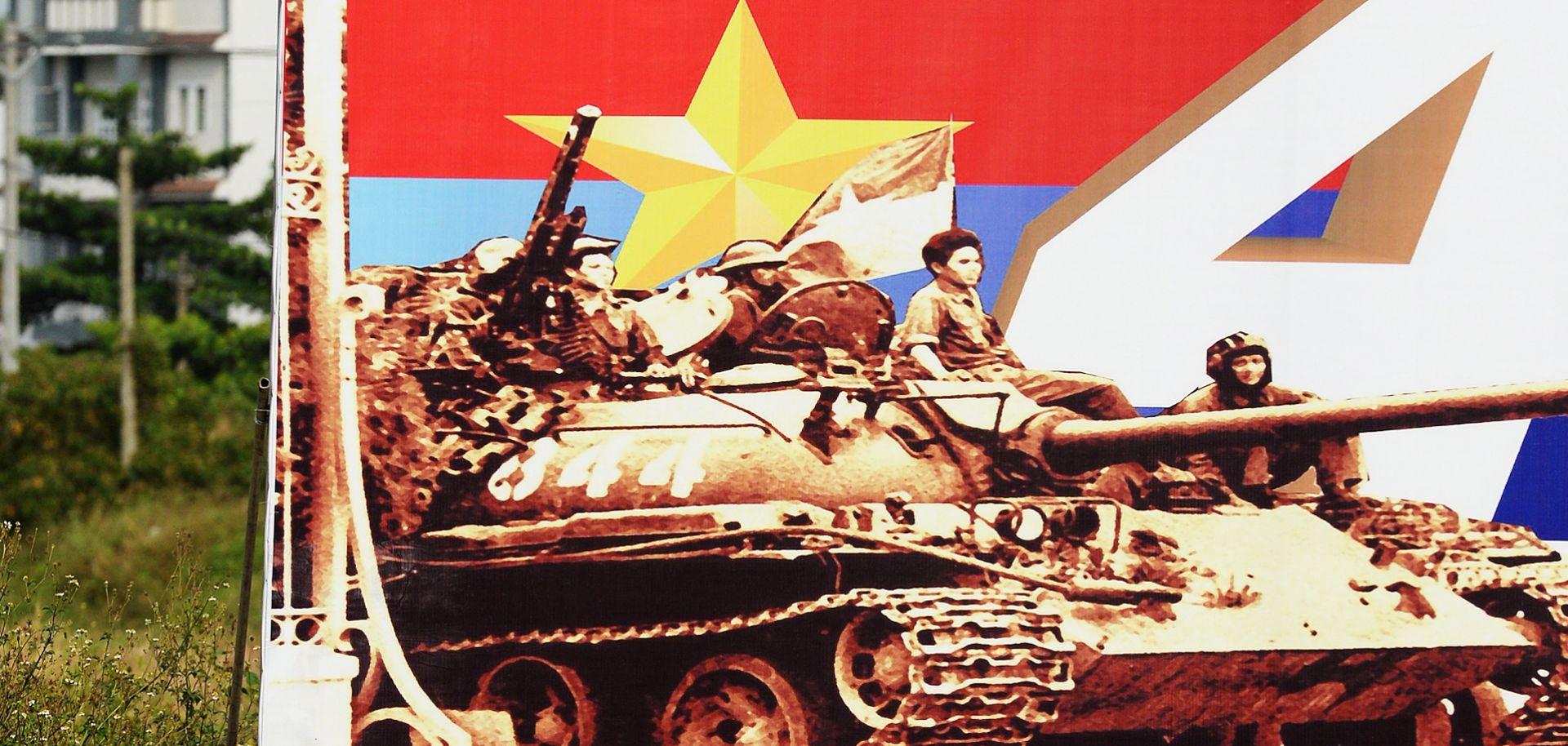COLUMNS
Weighing the Geopolitics of the Vietnam War
May 3, 2015 | 13:01 GMT

(HOANG DINH NAM/AFP/Getty Images)
Summary
South Vietnam's capital city, Saigon, fell to invading North Vietnamese troops on April 30, 1975. The image of an overloaded Huey helicopter on top of the U.S. Embassy in Saigon, frantically loading refugees, was forever seared into the American mind. It was the ignominious end of more than a decade of involvement by the United States in Vietnam.
Ultimately, Washington's failure to win the war in Vietnam resulted from factors beyond the conflict zone. The United States was heavily constrained by its global commitments — principally its need to secure Western Europe against Warsaw Pact invasion. Washington could not align military capabilities with realistic political goals to justify bringing the full might of U.S. armed forces to bear to defend its peripheral interests in Vietnam. Unable to comprehend North Vietnamese resolve and incapable of bringing about a swift victory, the United States' will to continue the war crumbled as the human cost mounted. Today, the dominant narrative among the American public is that Vietnam was a crushing American defeat. Forty years after the fall of Saigon, however, it is apparent that Vietnam had only a limited impact on the overall U.S. position within the broader context of the Cold War.
Subscribe Now
SubscribeAlready have an account?
